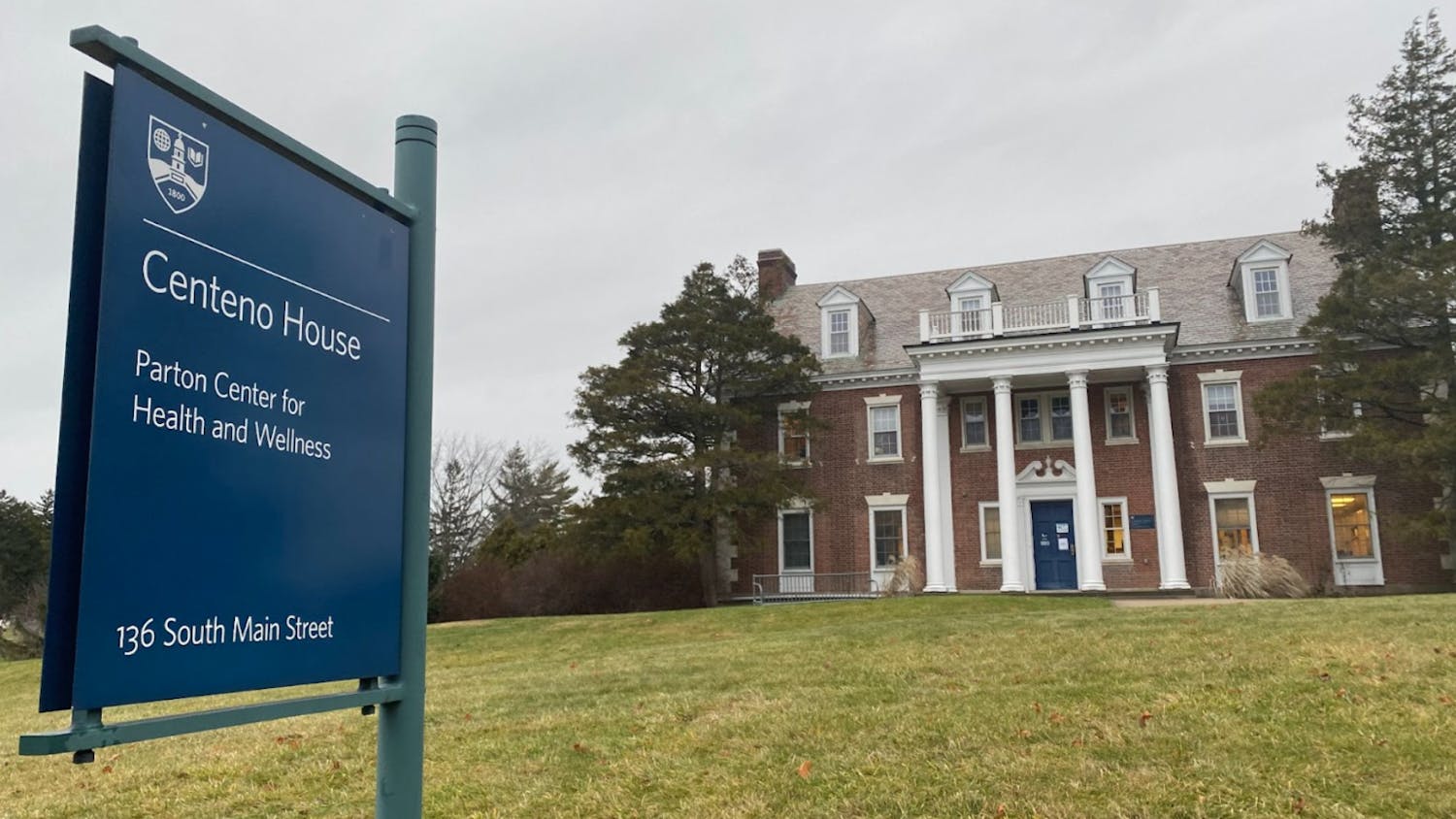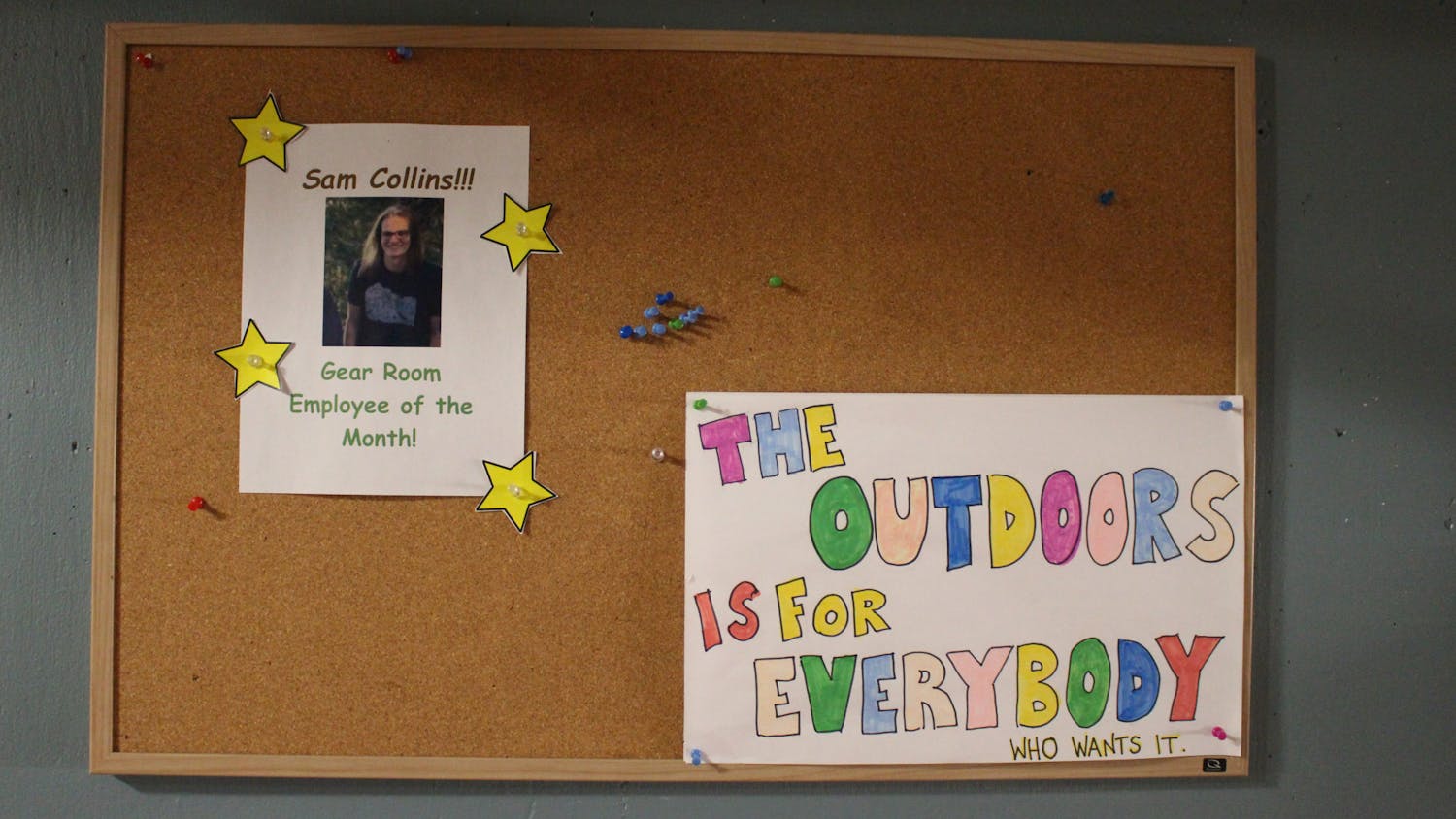Content warning: This op-ed references sexual assault.
In the early 2000s, student activists completely encircled Old Chapel to protest sexual assault on Middlebury’s campus. They had a simple demand that the college was ignoring: to install more blue lights. As the protest continued, President Lebowitz’s “right hand man” came out to engage with protestors. Finally, he told them that he “didn’t understand the problem because sexual assault didn’t happen on our campus.” At the time Middlebury advertised itself as a “rape free campus.”
What happened next was a show of bravery that inspired activists at Middlebury for years to come. Survivor after survivor stepped forward to say, “I was raped here.” Lauren Curatolo ’06, one of the protest organizers, was moved to tears. She remembers thinking, “How dare you say something like that when we all know.” The blue lights went up later that year.
This story is one of many examples of feminist student protest at Middlebury over the years recorded for posterity by the Archives of Dissent and can be found in the oral history of Curatolo. The Archives, a collection of feminist histories at Middlebury, has been compiled and curated by Chellis House student workers over the last five years. We are two of the archivists who have also been involved in activism on this campus. Before we graduate in eight days, we have a message to impart to the student body.
Our goals for this archive are twofold. First, we seek to honor the difficult work that student activists have done over the years to better our community. Second, we offer these histories as an essential tool for current Middlebury activists to build upon activist lineages of the past. In a college setting with rapid turnover every four years, it is incredibly difficult to maintain institutional memory among activists. When key organizers graduate, their work is often lost, forcing new activists to start again from square one. Further, student turnover allows college administrators to be unaccountable to conversations or promises they’ve made in the past. In the collection of oral histories we’ve conducted with current and former student activists at Middlebury, a recurring theme is the way in which administrators have used falsely supportive rhetoric to stall or quell current activism. When activists (including the authors of this op-ed) have raised issues with administrators, a common response — which we have personally received — is something along the lines of, “Great new idea, give us a few years to look into it.” A few years pass, those students graduate, and the college is in the clear to repeat the same script to the next wave of activists.
Sometimes the responses are even less positive, albeit still cloaked in the rhetoric of protecting survivors. Let us give you an example. One of the authors of this op-ed helped organize The Complicity Project in 2019, a library installation with photos, quotes, and statistics that delved into how students are complicit in a culture of sexual violence on campus, which can be found in the Archives of Dissent.
As we prepared for the display to go up, administrators and student groups affiliated with the Health and Wellness Office reached out to the organizers with criticisms. The main criticism: The display could trigger or harm survivors, and therefore the exhibition should be reconsidered. The organizers, many of whom were survivors themselves, left these meetings feeling flustered and discouraged. Their goal was to prevent violence by shining a light on it, and they had been deeply intentional about centering survivors and their well-being in the organizing process. Contextualizing this experience within the broader trend of administrative responses to student activism, the oral histories reveal that these concerns about triggering survivors have long been leveraged to maintain the status quo.
In 2011, eight years before the Complicity Project, the first It Happens Here was held at Middlebury. The event, which has been a mainstay on campus ever since, is an opportunity for survivors to anonymously share their stories of assault on their own terms. Pushback from administrators made it clear that they believed this event was harmful to survivors – simply by virtue of talking about sexual violence. This was despite the fact that students felt empowered to choose to share their stories, in large part because they felt they had no other institutional channels through which they could obtain a sense of justice or healing.
Other activist leaders we interviewed reported having similarly frustrating conversations with administrators. It turns out there’s a long history of Middlebury administrators using the language of activism being “triggering” to gatekeep student action that they feel uncomfortable with. If this really were the case, they wouldn’t be putting up posters with white block letters spelling “Need to talk about sexual assault?” in every bathroom on campus. The difference here is that these posters are sanctioned by the college, and they direct students through institutional channels, such as the Title IX Office, which exists to ensure the college’s compliance with Title IX and, therefore, federal funding. Survivors have long reported that these channels are not triggering, but re-traumatizing.
Why are these stories important? After talking to these former activists, we were able to sift through the criticisms that were valid and worth addressing, and those that were manipulative and intimidating rhetoric. From our archival work, we learned that talking about violence is activating, because violence itself is activating — but working towards change is necessary. We have since been a part of activist work directly informed by these and other lessons from the Archives.
The Archives of Dissent are a vital tool for current activists, not only for understanding the challenges to activism — and the tools and strategies for navigating them — but also for connecting activists to a joyous lineage of feminist community. Activists interviewed in our Archives often talk about looking back on their work as some of their favorite moments at Middlebury, helping them make long-lasting friendships.
Towards the goal of making the Archives a living, breathing conversation in the present, we recently held an “Archives of Dissent Teach-In,” in which student-activists gathered in Chellis House to collaborate and build coalition. Following a presentation about the Archives and its practical implications for student-activists, friends and strangers chatted over slices of pizza about the projects they are working on. They discussed the questions, “What challenges have you faced in your activism, and what lessons have you learned?” The room was filled with laughter and new collabs. It was clear: A joyous feminist community is alive and well on campus.
So, as the next wave of students graduate and those remaining continue to consider feminist issues that impact our campus community, we hope you will look to the Archives as a source of inspiration and knowledge. So many people have worked to make our community a more inclusive space, and so many are continuing to do this work on our campus. Join them. And archive it.




